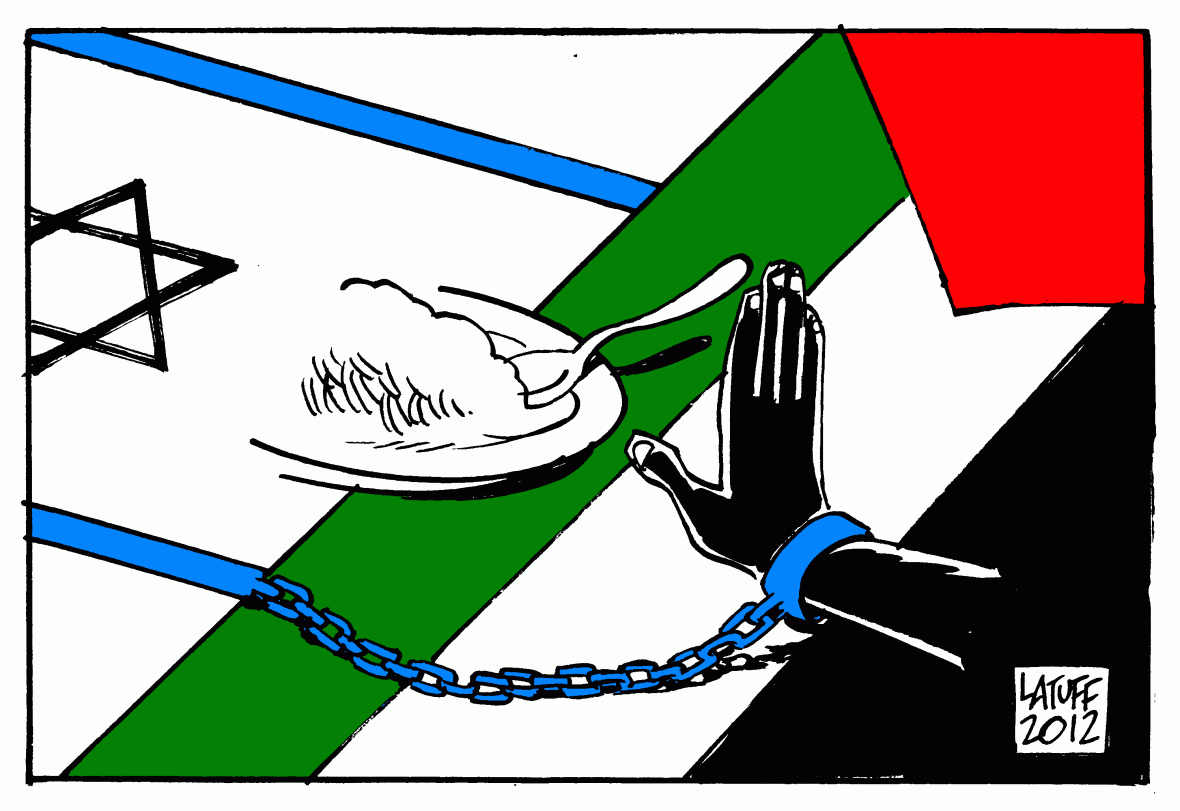On July 1, three more Palestinian prisoners joined the open hunger strike launched by their fellow prisoners, protesting their administrative detention. All the three prisoners are being held without charge or trial in the Negev prison on the basis of ‘secret’ evidence.
Of the three, Mohammed Nidal Abu Aker and Mohammed Attia Hassanat are from the Dheisheh refugee camp near Bethlehem and Huzaifa Halabiya is from Abu Dis in Jerusalem.
As many as 10 Palestinian prisoners began hunger strikes in various prisons in June. Ja’far Izz Al-Din, 48, and Ihsan Othman, 21, began their hunger strikes on 16 and 18 June respectively.
Jafar was set to be released from prison after a 5-month sentence but was instead put in administrative detention without charge or trial. Othman is a student of Al-Quds university and he has been unable to graduate and obtain his degree from the university because of his repeated detention.
Jafar is being detained in the Megiddo prison, and Israeli authorities have taken various repressive measures in an attempt to get him to call off his hunger strike. These include night inspections by personnel with dogs. A disciplinary court ordered him into solitary confinement, as well as barred visits from his family and his use of the prison store as punishment for the strike.
Administrative detention, which the prisoners are protesting against, can be ordered for a period of one to six months and can be renewed indefinitely. As a result of this, Palestinians end up languishing in Israeli jails for years without charge or trial. They are also often held in prison on the basis of ‘secret evidence.’
The prisoners’ affairs commission has stated that many of the prisoners who are on hunger strikes are suffering from health complications, including severe weakness, serious headaches, difficulty in moving, dizziness and yellowing of skin. The prison branch of the Popular Front for the Liberation of Palestine (PFLP) released a statement urging massive public support for the striking prisoners and calling for concrete action.
Amani Sarahneh from the Palestinian Prisoner Society said that the Israeli authorities were keeping the striking prisoners in solitary confinement and that they had prevented them from meeting their lawyers. She said that many more prisoners would join the hunger strikes to protest the policy of administrative detention.
Currently, there are approximately more than 5,500 Palestinian prisoners in Israeli prisons. More than 500 of them are in administrative detention.





